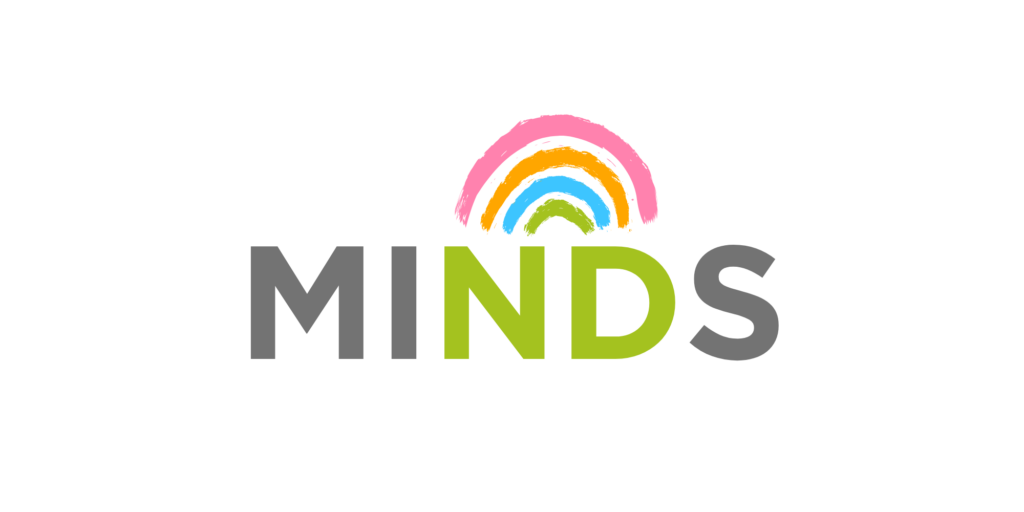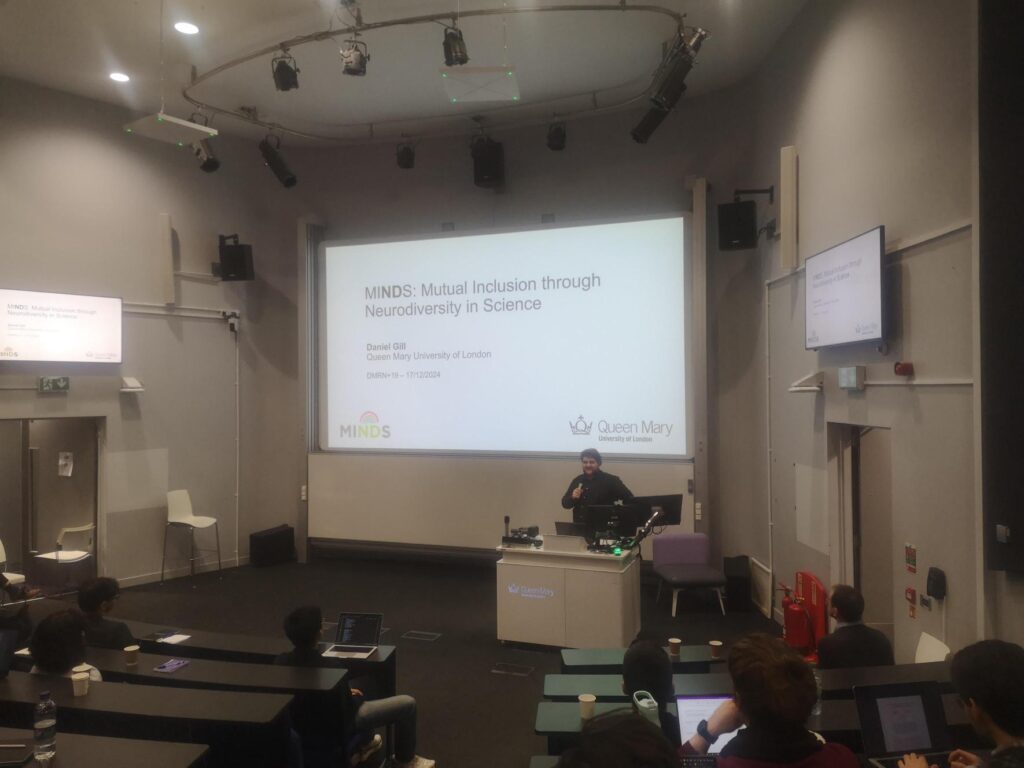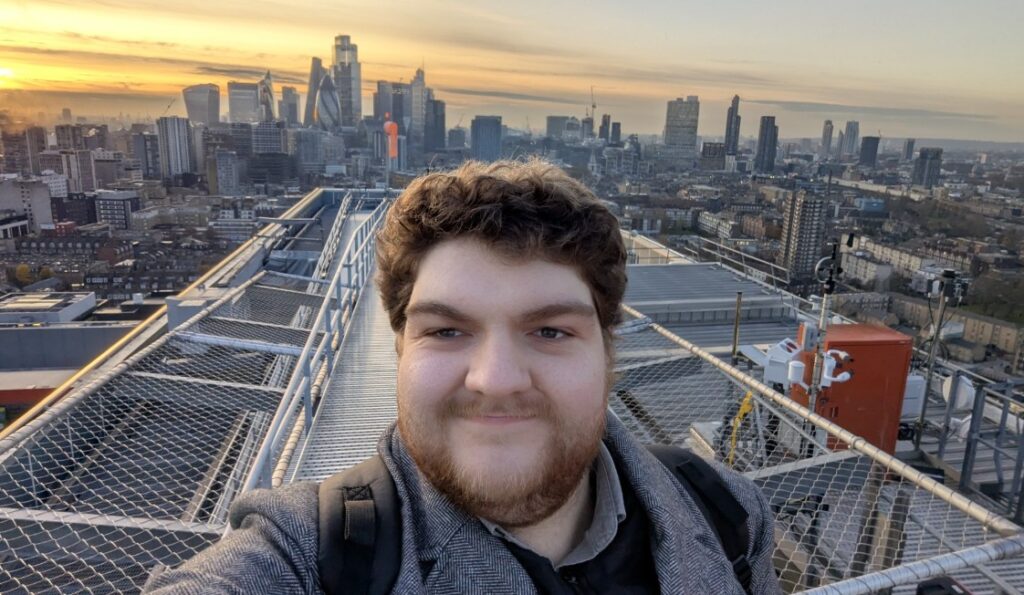

Daniel Gill, a PhD student answers some questions about MINDS and Neurodiversity.
What is MINDS?
MINDS stands for Mutual Inclusion through Neurodiversity in Science. It’s a network for researchers, neurodivergent people, and neurodivergent researchers. As a neurodivergent researcher, I am proud to be able to conduct research for and with members of my community. Through MINDS, we want to promote inclusive practices through encouraging and supporting researchers to work with neurodivergent individuals, highlighting good practices, and providing a platform to empower neurodivergent people to have an input on research that directly impacts them.
What does MINDS do?
We will be running workshops and have received funding from QMUL’s ERIC fund. The idea is to bring together researchers (both neurotypical and neurodivergent) and neurodivergent people from outside academia to promote the value of neurodivergent people in research and to foster understanding. Small group discussions will be led by expert speakers (both academic and non-academic backgrounds). Participants can form networks, create connections and learn about the research being done. Neurodivergent people can learn about research related to their conditions. Researchers can learn about working inclusively and reducing boundaries for neurodivergent individuals.
Who is behind MINDS?

Daniel Gill is a first year PhD student in EECS studying human computer interaction through the lens of neurodiversity. He wanted to use his privilege as being an autistic researcher to help foster connections between research and neurodivergent communities, and, in particular, he was concerned by language in neurodiverse research that are extremely offensive such as comparing neurodivergent people with “healthy controls” or fixing their “malfunctioning circuitry” to take examples from recent research papers.

Dr Ekaterina Ivanova is a lecturer in Human-Machine Interaction (since January 2023) and researcher in multimodal human-robot interaction and user-centred design of medical technology. Her long-term research goal is to develop truly useful robotics systems for medical applications with a focus on human users by considering and integrating factors from robotics, clinical rehabilitation, and neuroscience. She also a founder and co-organiser of Women in Higher Education Network (WHEN) at EECS.
Why start MINDS?
Neurodivergent individuals are often experts in their own condition – in much the same way a builder would be intimately familiar with their trade if they’d have lived with it since birth. Yet, some research fails to thoughtfully include neurodivergent individuals – missing out on the valuable insights that come from lived experience: the minutiae of daily life, a differing perspective on the world, and a challenge to deficit-based perceptions.
Events coming up
2nd April talk for world autism awareness day by Daniel Tammet at Queen Mary: https://www.eventbrite.co.uk/e/daniel-tammet-nine-minds-narrating-neurodivergent-experience-tickets-1144259734669?aff=oddtdtcreator
The first MINDS workshop is now open for sign-ups – it will take place on Thu 3rd April, from 4-7pm. More details on the Eventbrite page: https://www.eventbrite.co.uk/e/minds-neurodivergence-in-research-workshop-tickets-1253071102399?aff=oddtdtcreator
The full list of speakers will include Prof. Nelya Koteyko for the keynote talk, plus Emma Hayashibara, a neurodivergent PhD student.
June: second MINDS workshop.
How do I find out more?
MINDS website https://mindsintech.org.uk/ Contact Dan directly d.a.gill@qmul.ac.uk